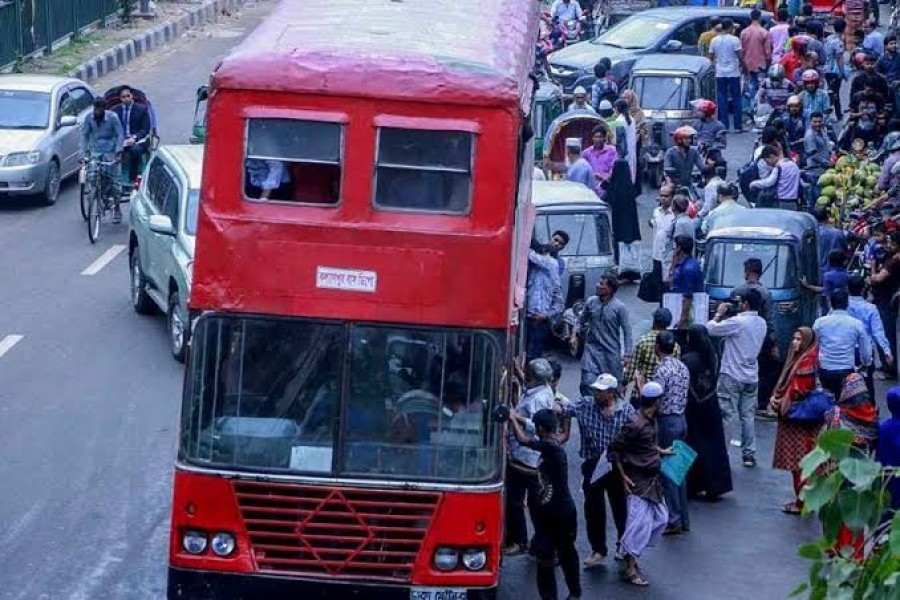
Published :
Updated :

The stalemate over enforcement of the new road transport act, it seems, will be over soon. However, the relief is likely to be temporary one. In fact, the transport owners and workers on the one side and the government on the other are out to buy some more time through so-called negotiations. The transport workers, in particular, do consider some of the provisions of the new law very 'harsh'. And the owners who have a propensity to side with their errant workers are also not comfortable with the road transport law. So, they have joined hands to demand softening of the 'tough' provisions and, as part of their strategy, enforced transport strike in some districts to put pressure on the government.
The people in general do support the new law that the government has decided to enforce almost one year after its adoption in parliament. They feel enforcement of the tough law is necessary to rein in the highhandedness of the bus operators on the streets. The people in general have appreciated the government's role in making the law. But it is quite apparent that the authorities have been in a dilemma over its enforcement. The delay in implementation of the law does highlight the government's indecisiveness on the issue.
There is no denying that both the government and the people in general are hostage to muscle-flexing transport workers. The latter in no time enforce transport strike causing untold sufferings to people seeking to move from one place to another and creating disruption in the movement of goods, particularly the essential ones. However, it is hard to overlook the fact that the situation prevailing in the transport sector today is the product of undue indulgence given by the power that be for decades to unruly bus-truck owners and workers. Politics, of course, has played an important part in it.
The ongoing troubles centring the enforcement of the new road transport act could not have come at a worse time than this when prices of a number of daily essentials, including onion, rice and edible oil, are on the rise. The onion prices have hit the all-time high record. The vegetables are now costlier though their prices, according to a report published in this paper, in northern districts have plummeted for disruption in transportation of goods. If the situation goes on like this, the cost of living that rose slightly last month would go up further.
The people, in fact, are not prepared for this kind of situation. The government should have settled the issue with the transport workers and owners before enforcement of the new act since it has got enough time to do that. Any decision to delay a few 'harsh' provisions or amending a few others coming under pressure would only expose the weaknesses of the government and may embolden the errant bus owners and drivers further.
Toughening of the transport act was necessary, no doubt. But what has always mattered most is the enforcement of the law. That is the area where the problem lies. Had the agencies concerned enforced even the old motor vehicle ordinance honestly, the need for the new law would not have arisen. Going by the past experience, the people are also not expecting anything extraordinary out of the new law.


 For all latest news, follow The Financial Express Google News channel.
For all latest news, follow The Financial Express Google News channel.